
Grand Lake, Colorado
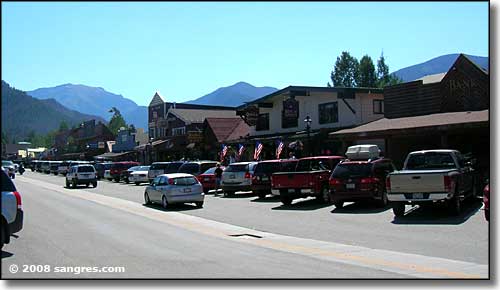
In downtown Grand Lake, Colorado
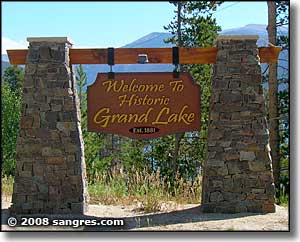
Historic Grand Lake is the western gateway into Rocky Mountain National Park. The townsite itself is between Grand Lake to the east and Shadow Mountain Lake to the south and southwest. The whole area is part of the Arapaho National Recreation Area. Grand Lake is the largest natural body of water in Colorado and is considered to be the source of the Colorado River. The nearby Shadow Mountain and Granby Lakes are man-made parts of the Colorado-Big Thompson project which diverts water to the Front Range cities through a tunnel beneath the Continental Divide.
The first permanent settlers in the Grand Lake area arrived about 1866. Most of them were hunters and fishermen. There was a brief spurt of miners in the late 1870's when silver was discovered in the streams and mountains nearby. New businesses sprung up in Grand Lake to outfit and supply the miners at Lulu City, Gaskill and Teller City. The population boom that accompanied the increase in mining brought the Grand County seat to Grand Lake in 1882, but with the drop in population when the ore bodies gave out a few years later, the county seat reverted back to Hot Sulphur Springs in 1888.
Almost from day one, Grand Lake has been a tourism mecca. The very first settlers built log cabins and even small hotels to accommodate the seasonal flow of visitors who came to enjoy the hunting, fishing, boating, hiking, and even just the pristine mountain air.
Today, Grand Lake still offers the visitor that Old West feel, right down to the wooden boardwalks that line the main street. And the area still offers world-class recreational opportunities that are hard to match anywhere else, at any time of year.
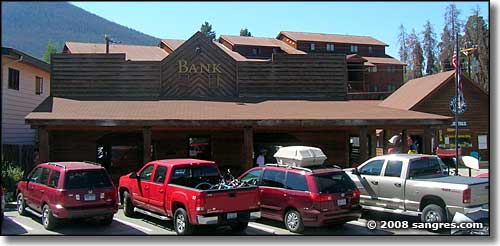
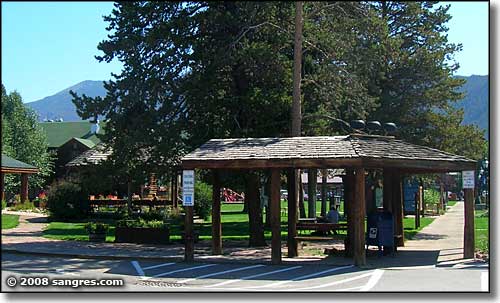
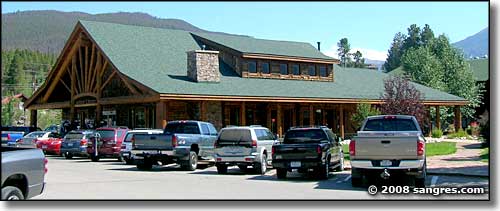
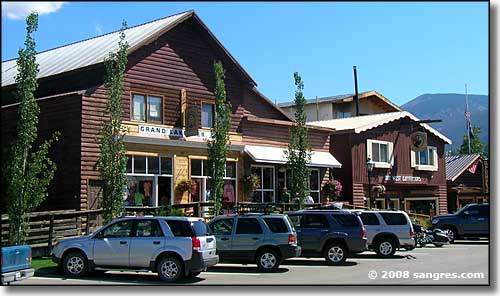
And then there's Shadow Mountain Lake, on the south side of Grand Lake:
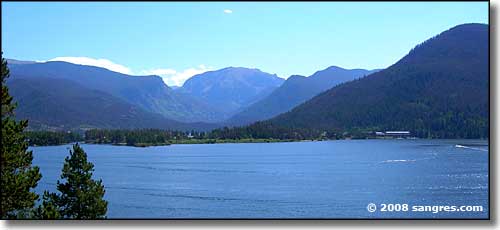
Looking east, Mount Craig in the distance
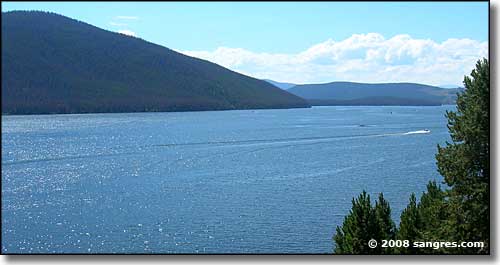
South of Grand Lake, looking southeast across Shadow Mountain Lake
Latitude: 40.2505°N
Longitude: 105.8243°W
Incorporated: 1944
Elevation: 8,437'
Education:
High School or Higher: 95.4%
Bachelor's Degree or Higher: 35.3%
Graduate or Professional Degree: 13.6%
2011 Cost of Living Index for Grand Lake: 96.5
Median Resident Age: 44.3 Years
Estimated Median Household Income: $31,670
Estimated Median Home Value: $566,500
Major Industries:
Lodging & Food Services, Construction, Real Estate Services, Retail Services, Government, Educational Services, Arts & Entertainment, Professional Services, Agriculture, Waste Management Services
Unemployed (March 2011): 8.7%
Population Demographics: 2010
| Total Population | 471 |
| Males | 251 |
| Females | 220 |
| Population by Age | |
| Under 18 | 69 |
| 18 & over | 402 |
| 20-24 | 21 |
| 25-34 | 41 |
| 35-49 | 95 |
| 50-64 | 167 |
| 65 & over | 69 |
| Population by Ethnicity | |
| Hispanic or Latino | 35 |
| Non Hispanic or Latino | 436 |
| Population by Race | |
| White | 439 |
| African-American | 1 |
| Asian | 2 |
| Native American | 4 |
| Hawaiian or Pacific Islander | 0 |
| Other | 10 |
| Two or more | 15 |
Wolford Mountain Reservoir - Winter Park Ski Area - SolVista Basin Ski Area
Rocky Mountain National Park - Colorado River Headwaters Scenic Byway
Arapaho-Roosevelt National Forest - Routt National Forest
State Trust Lands & Wildlife Areas
National Park Service Sites - BLM Sites - National Wilderness Areas - Unique Natural Features
Outdoor Sports & Recreation - Ski & Snowboard Areas - Photo Galleries - Colorado Mountains
